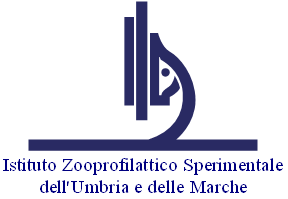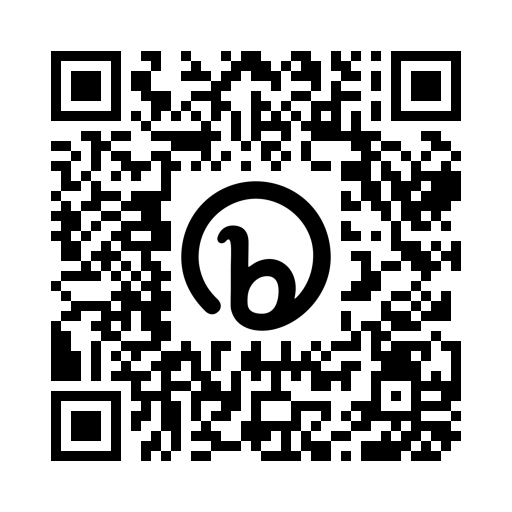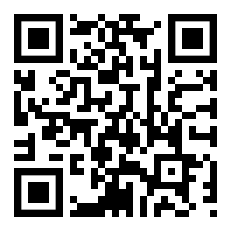E-JOURNAL SANITÀ PUBBLICA VETERINARIA - SPVet.it [ISSN 1592-1581]

|
ALLEGATO A SPVET.IT
PROGETTO: Micro Epidemic One Health[Documentazione in Progress - Versione 1.5]
bit.ly/documentazionestoriedizoonosi 
|
ATTIVITA' DI SENSIBILIZZAZIONE E DIFFUSIONE DELLA NARRATIVE MEDICINE IN AMBITO BIO MEDICO VETERINARIO
The Micro Epidemic One Health Project Webpage (Italian Ministry of Health Research Project: MEOH/2021-2022 - IZS UM 04/20 RC)
Abstract. The Micro Epidemic One Health Project, aims to create an open repository of narratives concerning zoonoses; diseases transmitted from animals to humans and vice versa.
These zoonoses tales, derive from the recording of interviews or free narrations of privileged witnesses (Veterinarians, Healthcare Professionals, Researchers) who really faced and experienced them in their professional activity.
The narratives - case studies, are made freely available to readers through a Web hypertext accessible from the Internet and a Smartphone App.
Texts, annotated through crowdsourcing, are linked to peer reviewed scientific literature by experts and documentalists.
They represent valid teaching material for young doctors and veterinarians, as well as an informational instrument for the civilian population.
So that way, the Micro Epidemic One Health Project will contribute to promote a greater sharing of scientific knowledge on zoonoses making it easier to detect them early and contrast them in the appropriate ways.
Sintesi. Il progetto Micro Epidemic One Health ha lo scopo di creare un repository ad accesso libero di narrazioni che riguardano le Zoonosi, malattie che si trasmettono dagli animali all'uomo e viceversa.
I racconti di zoonosi derivano da narrazioni libere o registrazione di interviste di testimoni privilegiati (Veterinari, Operatori Sanitari, Ricercatori) che le hanno realmente sperimentate nel corso della loro attività professionale.
Grazie a Micro Epidemic One Health, le narrazioni - casi di studio, sono posti a disposizione dei lettori attraverso un E-Journal liberamente accessibile dalla Rete ed una App per Smartphone.
I testi, annotati in crowdsourcing, sono collegati alla letteratura scientifica peer reviewed da esperti e documentalisti.
Essi rappresentano un valido materiale di studio per giovani Medici e Veterinari, oltre che di informazione per la Popolazione civile.
In questo modo il Progetto Micro Epidemic One Health contribuirà a promuovere una maggiore condivisione di conoscenze scientificamente valide sulle zoonosi, rendendo più facile rilevarle precocemente e contrastarle nei modi appropriati.
EXCERPTA - PROGETTO MICRO EPIDEMIC ONE HEALTH [IZS UM 04/20 RC]
| download pdf 606 KB |
|
Come partecipare al Progetto Micro Epidemic One Health
Il progetto in due parole
Il progetto Micro Epidemic One Health riunisce un team di Operatori del Sistema Sanitario, ricercatori, giornalisti, collegato alla comunità scientifica e Professionale che opera in ambito One Health, al fine di recensire, analizzare e diffondere narrazioni in forma di racconti o interviste sulle zoonosi, malattie che si trasmettono dagli animali all’uomo e viceversa. Perché raccogliere, elaborare o segnalare queste storie di zoonosi? I Casi di Studio sulle zoonosi, verificatisi in un determinato contesto o territorio, costituiscono un materiale documentale di grande valore per la sorveglianza e prevenzione di queste patologie. Ciò è particolarmente vero se sono testimoniate in modo realistico dai Professionisti che le hanno personalmente affrontate. Utilizzazione dei vostri Racconti I racconti recensiti dal Progetto Micro Epidemic One Health verranno utilizzati per conseguire tre obiettivi:
Esortiamo gli Operatori del Sistema Sanitario, i Ricercatori biomedici ed i Citizen Scientists/Cultori della Materia, gli Informatici a: condividere con noi le loro storie di zoonosi, comunicandole, come narrazioni o interviste, al Board Scientifico del progetto Micro Epidemic alla pagina: http://195.231.3.150/crowdsourcing/submission o utilizzando il Form Elettronico: https://forms.gle/VboomYUjKdDggr2s8; segnalare conoscenti (Veterinari dei Servizi Sanitari, Veterinari Liberi Professionisti, Ricercatori, Operatori Sanitari) che ne abbiano una da raccontare o che possono essere intervistati su l'evento zoonotico al quale hanno partecipato; aggiungendo note informative, basate sulla propria esperienza alle storie di zoonosi pubblicate dal Sistema Micro Epidemic; partecipando alla elaborazione dell'applicazione Software Micro Epidemic, sulla Piattaforma GitHub del Progetto alla pagina: http://spvet.it/microepidemic/app.html La documentazione inviata sarà sottoposta a validazione da parte del Board scientifico editoriale del Progetto Micro Epidemic One Health. Tutti i racconti accettati verranno registrati e pubblicati a nome di chi li avrà forniti (authorship) e saranno messi gratuitamente a disposizione dei ricercatori e dei lettori interessati agli aggiornamenti e alla discussione sui Casi di Zoonosi. How to participate at the Micro Epidemic One Health Project
The project in two words
The Micro Epidemic One Health project brings together a team of Health System Practitioners, Researchers, Journalists, connected to the scientific and professional community operating in the One Health field, in order to review, analyze and disseminate narratives in the form of stories / interviews on zoonoses. Diseases that are transmitted from animals to humans and vice versa. Why collect, process or report these zoonosis narrations? The case studies on zoonoses, which occurred in a specific context or territory, constitute a documentation of great value for the surveillance and prevention of these diseases. This is especially true if they are witnessed by Veterinarians and Doctors who have personally dealed with the cases. Use of Stories The narrations reviewed by the Micro Epidemic One Health Project will be used to achieve three objectives:
We invite Health System Practitioners, Biomedical Researchers, Citizen Scientists and Computer Scientists to: share their zoonosis stories with us, communicating them, as narratives or interviews, to the Scientific Board of the Micro Epidemic project at the page: http://195.231.3.150/crowdsourcing/submission, or using the Electronic Form: https://forms.gle/VboomYUjKdDggr2s8 to report people (Health Services Veterinarians, Freelance Veterinarians, Researchers, Health Operators) who can be interviewed about the zoonotic event in which they participated; adding information notes, based on his own experience, to the zoonosis stories published by the Micro Epidemic System; participating in the development of the Micro Epidemic Software application, on the Project's GitHub Platform at the page: https://spvet.it/microepidemic/app.html. The documentation sent will be subjected to validation by the Editorial Scientific Board of the Micro Epidemic One Health Project. All accepted stories will be recorded and published in the name of whoever provided them (authorship) and will be made available free of charge to researchers and readers interested in updates and discussion on the Zoonosis Cases. SLIDESET: The Micro Epidemic One Health Project for Veterinarians and Practitioners
a new way of sharing information on zoonoses for the scientific community and civil society |
DOCUMENTAZIONE DEL PROGETTO MICRO EPIDEMIC ONE HEALTH IN REVISIONE CONTINUA
[1] INTERFACCIA GRAFICA UTENTE - PIATTAFORMA STORIE DI ZOONOSI [Micro Epidemic One Health]
Descrizione dell'Interfaccia Grafica Utente ed accesso in scrittura al codice del Progetto Micro Epidemic One Health.
https://spvet.it/microepidemic/app.html
[2] PROTOCOLLI METODOLOGICI - Micro Epidemic One Health
Di seguito vengono riportati, per riferimenti operativi, i protocolli di base del Progetto Micro Epidemic One Health.
I Protocolli / Template, sono attualmente a disposizione per interventi di Social Peer Review nello spazio online di condivisione del Progetto sul Web, in forma di allegato alla rivista scientifica SPVet.it.
Sono disponibili per le modifiche:
(a) Protocollo Metodologico per la raccolta delle interviste / narrazioni, Versione: 1.1 - Progetto MEOH/2022
https://spvet.it/microepidemic/MEOH-02.html
(b) Protocollo Metodologico sulle nuove "revisioni narrative" collegate alle "Storie di Zoonosi" - Accesso alle Revisioni in elaborazione, Versione: 1.3 - Progetto MEOH/2022
https://spvet.it/microepidemic/MEOH-03.html
(c) Protocollo Metodologico Micro Epidemic Serious Game, Versione: 1.0 - Progetto MEOH/2022
https://spvet.it/microepidemic/MEOH-04.html
[3] PIATTAFORMA WEB - PROGETTO MICRO EPIDEMIC ONE HEALTH, PER LA RACCOLTA DELLE NARRAZIONI SULLE ZOONOSI
Repository di esperienze in forma di narrazioni con riferimenti alla letteratura scientifica riguardanti «Casi di Zoonosi»
https://storiedizoonosi.spvet.it/
[https://195.231.3.150]
[4] WEBINAR/FORMAZIONE/MEETING - Micro Epidemic One Health
- Webinar di avviamento del Progetto Micro Epidemic One Health: Primo meeting per la condivisione delle "Storie di Zoonosi" (18 Novembre 2021)
- Formazione Ordine dei Giornalisti dell'Umbria. Accesso all'informazione scientifica per i Giornalisti nel contesto dell'Open Science - Progetto MEOH - SPvet.it 2022 (23 Settembre 2022)
- Webinar Vet01: "Il sapere necessario alla professione medico veterinaria, negli anni della pandemia globale" (data da destinarsi).
[5] LIBERATORIE E DISCLAIMERS DEL PROGETTO MICRO EPIDEMIC ONE HEALTH / SPVET.IT
Nel Progetto Micro Epidemic One Health sono utilizzate liberatorie standard che consentono l'utilizzazione controllata di immagini, parlato e testi. Viene anche assicurata la protezione dei dati sensibili di coloro che partecipano al progetto con le proprie esperienze.
Questa documentazione è contenuta nell'Allegato Liberatorie della Rivista SPVet.it.
[6] ATTIVITA' COLLATERALI DI SENSIBILIZZAZIONE E DIFFUSIONE DELLA NARRATIVE MEDICINE IN AMBITO BIO MEDICO VETERINARIO
In questa sezione sono inserite le iniziative di accompagnamento del Progetto Micro Epidemic One Health.
La documentazione è attualmente in progress ed è disponibile all'indirizzo Lessons Learned a cura degli Ordini professioniali dei Medici Veterinari.
[7] BIBLIOGRAFIA SELEZIONATA SULLE ZOONOSI
Monografie sull'argomento.
https://spvet.it/microepidemic/MEOH-01.html
Micro Review.
https://spvet.it/microepidemic/MEOH-05.html
Letteratura di riferimento & Open Data
Adorisio P. L., Cervigni G., Camaiani R., Farina G., Rocchegiani E., Filippini G., Ciappelloni R. (2019). Caso di studio: Accesso all'informazione scientifica per i Liberi Professionisti e Startup nell'ambito dell'Open Science nel settore Veterinario e Agrario - Case study: Access to scientific information for Veterinarians and innovative Startups within the Open Science in the context of Open Science in the Veterinary and Agricultural field. Sanità Pubblica Veterinaria, n. 115, Agosto. https://spvet.it/archivio/numero-115/700.html
Ciappelloni R., Duranti A., Maresca C., Marenzoni M. L., Grilli L., Lepri E., Capuccella M., Paola Torlone M. P. (2021). Comunicazione scientifica ampliata sulle zoonosi: storytelling visuale, multicanalità, Open Data in un progetto di One Health - Expanded scientific communication onm zoonosis: multi-channel visual storytelling, and Open Data for One Health project. Sanità Pubblica Veterinaria, n. 124, Febbraio. https://spvet.it/archivio/numero-124/edi124.html;
Versione PDF - 913KB
Ciappelloni R. (2021). Intervista a Rebecca Bragadin sull'Associazione delle Donne Medico Veterinario - Interview with Rebecca Bragadin on the italian Veterinarian Women Association. Sanità Pubblica Veterinaria, n. 126, Giugno https://spvet.it/archivio/numero-126/edi126.html
Glukhovetska I. (2020). L'uso dei videogame in Medicina Veterinaria per facilitare l'apprendimento dei concetti di malattie infettive - Use of videogames in Veterinary Medicine to make the learning of infectious disease concepts easier. Sanità Pubblica Veterinaria, n. 122, Ottobre. https://spvet.it/archivio/numero-122/712.html
Istituto Superiore di Sanità (2023). Basi di Dati e altre risorse. https://www.iss.it/bibl-banche-dati-e-altre-risorse
Martinez-Conde S., Macknik S. L. (2017). Enhancing science communication with storytelling. Proceedings of the National Academy of Sciences Aug 2017, 114 (31) 8127-8129; DOI: 10.1073/pnas.1711790114. https://www.pnas.org/content/114/31/8127
Open Data (csv). Ministero della Salute. Corrispondenze ASL-Comuni e popolazione residente (2023) - anno 2021. https://www.dati.salute.gov.it/dati/dettaglioDataset.jsp?menu=dati&idPag=3
Open Data (csv). Ministero della Salute. Scambi Animali Vivi (01/07/2022 - 31/12/2022). https://www.dati.salute.gov.it/dati/dettaglioDataset.jsp?menu=dati&idPag=148
Open Data (csv). Ministero della Salute. Scambi di alimenti di origine animale (01/07/2022 - 31/12/2022). https://www.dati.salute.gov.it/dati/dettaglioDataset.jsp?menu=dati&idPag=147
Open Data (csv). Ministero della Salute. Importazioni di alimenti di origine vegetale e mangimi (01/07/2022 - 31/12/2022). https://www.dati.salute.gov.it/dati/dettaglioDataset.jsp?menu=dati&idPag=145
Open Data (csv). Ministero della Salute. Importazione Animali Vivi (01/07/2022 - 31/12/2022). https://www.dati.salute.gov.it/dati/dettaglioDataset.jsp?menu=dati&idPag=144a
Open Data (csv). Ministero della Salute. Farmaci veterinari (2023). https://www.dati.salute.gov.it/dati/dettaglioDataset.jsp?menu=dati&idPag=90
Van Limburg M., Wentzel J., Sanderman R., Van Gemert-Pijnen L. (2015). Business Modeling to Implement an eHealth Portal for Infection Control: A Reflection on Co-Creation With Stakeholders. JMIR Research Protocols;4(3):e104 doi: 10.2196/resprot.4519. https://www.ncbi.nlm.nih.gov/pmc/articles/PMC4736288/

Progetto Micro Epidemic One Health [IZS UM 04/20 RC] - Sanita Pubblica Veterinaria - Istituto Zooprofilattico Sperimentale dell'Umbria e delle Marche (SPVet.it 2022)

Page on the Project: Micro Epidemic One Health - Ministry of Health - Italy 2021/2022 by Micro Epidemic One Health Scientific Board is licensed under a Creative Commons Attribution 4.0 International License.
Permissions beyond the scope of this license may be available at https://indice.spvet.it/adv.html.

Progetto Micro Epidemic One Health - Sanita Pubblica Veterinaria - Istituto Zooprofilattico Sperimentale dell'Umbria e delle Marche
[SPVet.it ISSN 1592-1581][redazione-spvet@izsum.it; info@spvet.it][075343207]
Raoul Ciappelloni: redazione-spvet@izsum.it
Ciappelloni R., Duranti A., Maresca C., Marenzoni M. L., Grilli L., Lepri E., Capuccella M., Paola Torlone M. P. (2021). Comunicazione scientifica ampliata sulle zoonosi: storytelling visuale, multicanalità, Open Data in un progetto di One Health - Expanded scientific communication onm zoonosis: multi-channel visual storytelling, and Open Data for One Health project. Sanità Pubblica Veterinaria, n. 124, Febbraio. https://spvet.it/archivio/numero-124/edi124.html;
Versione PDF - 913KB
Ciappelloni R. (2021). Intervista a Rebecca Bragadin sull'Associazione delle Donne Medico Veterinario - Interview with Rebecca Bragadin on the italian Veterinarian Women Association. Sanità Pubblica Veterinaria, n. 126, Giugno https://spvet.it/archivio/numero-126/edi126.html
Glukhovetska I. (2020). L'uso dei videogame in Medicina Veterinaria per facilitare l'apprendimento dei concetti di malattie infettive - Use of videogames in Veterinary Medicine to make the learning of infectious disease concepts easier. Sanità Pubblica Veterinaria, n. 122, Ottobre. https://spvet.it/archivio/numero-122/712.html
Istituto Superiore di Sanità (2023). Basi di Dati e altre risorse. https://www.iss.it/bibl-banche-dati-e-altre-risorse
Martinez-Conde S., Macknik S. L. (2017). Enhancing science communication with storytelling. Proceedings of the National Academy of Sciences Aug 2017, 114 (31) 8127-8129; DOI: 10.1073/pnas.1711790114. https://www.pnas.org/content/114/31/8127
Open Data (csv). Ministero della Salute. Corrispondenze ASL-Comuni e popolazione residente (2023) - anno 2021. https://www.dati.salute.gov.it/dati/dettaglioDataset.jsp?menu=dati&idPag=3
Open Data (csv). Ministero della Salute. Scambi Animali Vivi (01/07/2022 - 31/12/2022). https://www.dati.salute.gov.it/dati/dettaglioDataset.jsp?menu=dati&idPag=148
Open Data (csv). Ministero della Salute. Scambi di alimenti di origine animale (01/07/2022 - 31/12/2022). https://www.dati.salute.gov.it/dati/dettaglioDataset.jsp?menu=dati&idPag=147
Open Data (csv). Ministero della Salute. Importazioni di alimenti di origine vegetale e mangimi (01/07/2022 - 31/12/2022). https://www.dati.salute.gov.it/dati/dettaglioDataset.jsp?menu=dati&idPag=145
Open Data (csv). Ministero della Salute. Importazione Animali Vivi (01/07/2022 - 31/12/2022). https://www.dati.salute.gov.it/dati/dettaglioDataset.jsp?menu=dati&idPag=144a
Open Data (csv). Ministero della Salute. Farmaci veterinari (2023). https://www.dati.salute.gov.it/dati/dettaglioDataset.jsp?menu=dati&idPag=90
Van Limburg M., Wentzel J., Sanderman R., Van Gemert-Pijnen L. (2015). Business Modeling to Implement an eHealth Portal for Infection Control: A Reflection on Co-Creation With Stakeholders. JMIR Research Protocols;4(3):e104 doi: 10.2196/resprot.4519. https://www.ncbi.nlm.nih.gov/pmc/articles/PMC4736288/
| OPEN REVIEW - Modulo per la "revisione aperta" di questo articolo sull'allegato Micro Epidemic One Health SPVet.it |

Progetto Micro Epidemic One Health [IZS UM 04/20 RC] - Sanita Pubblica Veterinaria - Istituto Zooprofilattico Sperimentale dell'Umbria e delle Marche (SPVet.it 2022)

Page on the Project: Micro Epidemic One Health - Ministry of Health - Italy 2021/2022 by Micro Epidemic One Health Scientific Board is licensed under a Creative Commons Attribution 4.0 International License.
Permissions beyond the scope of this license may be available at https://indice.spvet.it/adv.html.

Progetto Micro Epidemic One Health - Sanita Pubblica Veterinaria - Istituto Zooprofilattico Sperimentale dell'Umbria e delle Marche
[SPVet.it ISSN 1592-1581][redazione-spvet@izsum.it; info@spvet.it][075343207]
Raoul Ciappelloni: redazione-spvet@izsum.it